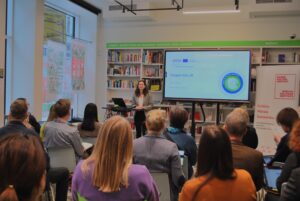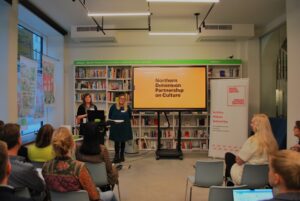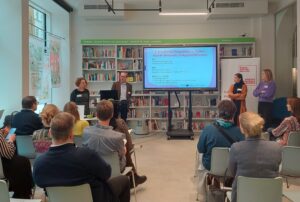The Creative Circular Cities has kicked-off its journey
Our colleagues Kristīne Lipiņa (Project Manager representing NDPC in the #CreativeCircularCities project) and Elīna Meiere (Communication Manager) were pleased to join the Creative Circular Cities (CCC) project partners to Riga on 18-19 January for the project kick-off event. We extend our sincere gratitude to the project lead, the Danish Cultural Institute in Estonia, Latvia and Lithuania, for their exceptional facilitation and warm hospitality during this foundational meeting!
In the project 14 organisations in the Baltic Sea Region have joined forces to produce guidelines & tools to involve the Culture and Creative Sector and Industries (CCSI) into the transition to circular economy at local level.The tools will be tested in 6 cities – Riga, Tallinn, Turku, Aarhus, Kiel and Gdynia. In each of the cities a network of organisations will be established that will cooperate in generating and testing the ideas. In 2024 four labs (multi-day workshops) will take place in the cities participating in the project, focusing on policy, business, citizen engagement and strategy to involve the CCSI in the transition to circular economy.
In the project, NDPC will act as knowledge broker and provide support by engaging in many aspects of the common CCC journey, for example, among others, with tasks such as:
- Participating in & contributing expertise to the transnational peer learning process;
- Leading the elaboration of the “CCC Starter Kit” and contributing to it with “easy to understand” PR tools for creating a basic awareness & understanding of CCSI-driven circular transition;
- In close cooperation with the Danish Cultural Institute, elaborating the “CCC Policy Roadmap” and co-leading the dialogue with policy makers via NDPC channels & structures.
We are looking forward to embarking on this transformative journey. Stay tuned to know more!
Find out more about the project: https://interreg-baltic.eu/project/ccc/





